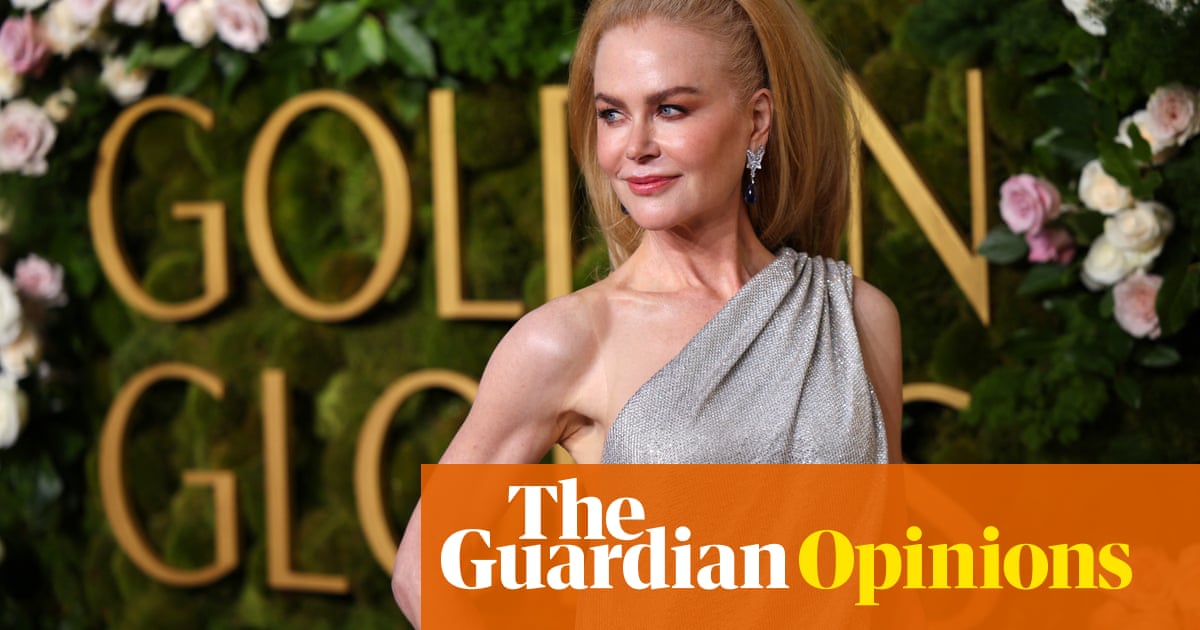There’s something spectacular happening in movies and television at the moment and it’s not a superhero fight sequence or a motorcycle stunt off a cliff. No, it’s the celebration of courageous, multilayered middle-aged and older female characters being portrayed in all their complexity on screen.
The Golden Globes highlighted this trend, handing out a swag of awards to the women who played these characters – often to their surprise.
The longtime Hollywood star Demi Moore, who was awarded best female actor in a musical or comedy – fittingly for a film that critiques how the film industry discards older female actors – said she was shocked to receive the award. “I’ve been doing this a long time, like over 45 years, and this is the first time I’ve ever won anything as an actor.”
Jodie Foster also noted the trend while accepting her fifth Golden Globe for the latest season of True Detective. “The greatest thing about being this age and being in this time is having a community of all these people,” she said.
2024 was a stand-out year for complex, courageous female characters, who show a steely perseverance in getting through life’s challenges and yet can still be unpredictable.
Take 50-year-old Hannah Waddingham of Ted Lasso fame who plays Rebecca Welton, an embittered divorcee who manages to transform her disappointment and shame into becoming an amazingly strong support to the coach she has hired. She shows us how to overcome an ugly divorce with wit, humour and charm.
Jean Smart, who was handed the Golden Globe for best female actor in a television series for her role in Hacks, is another example. Her character, Deborah Vance, is insecure and ambitious. It’s this double-edged sword that gives Vance her comedic edge and depth.
For a long time the things that we feel are important to see in older female characters – their depth and intuition, their strength and courage and more often than not an ordinary and ageing appearance – were not being reflected back to us in most of the shows or films we watched.
In an acceptance speech for a Palm Springs international film festival award last week, an emotional Nicole Kidman spoke of how she was “so lucky to be given a role of that nature”, referring to the newly released erotic thriller Babygirl, in which she plays a highly competent CEO who begins an affair with a twentysomething intern. She highlighted that in the past the film industry would never have asked a woman in her 50s to play such a role.
An award-winning writer, director and professor of gender and women’s studies at California State University, Jennifer Berry, says it is important to show more older female characters in film – and average-looking naked older bodies, too. She is grateful to A-list actors including Kate Winslet for their stance on remaining authentic when depicting older female characters.
There is a need for authenticity and diversity in the stories we consume in film and television. We are excited to see more actors of diverse cultures, sexuality, gender identities and varied abilities beginning to play lead roles in films and TV, and there is definitely also a place for age diversity.
This doesn’t just mean including more older men and women in starring roles. It means depicting a diversity of ages working together, collaborating and mentoring one another as well.
For aeons Hollywood portrayed leading ladies as the romantic interest of the male star and they were rarely cast in roles beyond the age of 40. Older female characters were usually relegated to being either a benevolent “support person” or an evil bitch.
These binary categorisations are where the disconnect in media portrayal happens, because younger women are so much more than just their looks, and older women are a whole other kind of sexy. They are a lot more self-assured, sophisticated and funny and less willing to bow to the conventional notions of beauty. They can be wry, multi-faceted and can simultaneously take a complicated and simple approach to life. This is born of their years of meeting, but also rebelling against, societal expectations.
Pamela Anderson, 57, the star of forthcoming film The Last Showgirl, is one midlife woman who has rewritten the narrative on her career, life and image. She continues to evolve and transform herself in her professional and private life. She has turned up as an invited guest to many fashion shows with a bare face and declared: “I don’t need to be the prettiest girl in the room” – and the internet has gone into overdrive about it.
Michelle Yeoh, 62, who won 2023’s best actress Oscar for Everything, Everywhere all at Once said in her acceptance speech: “Ladies, don’t let anyone ever tell you that you are past your prime.” It might just be that entertainment executives, producers, writers and directors are beginning to take note.
-
Natasha Ginnivan is a researcher of psychology and ageing. She is a member of the UNSW Ageing Futures Institute and she regularly blogs on age stereotypes, ageism and self-perceptions of ageing

